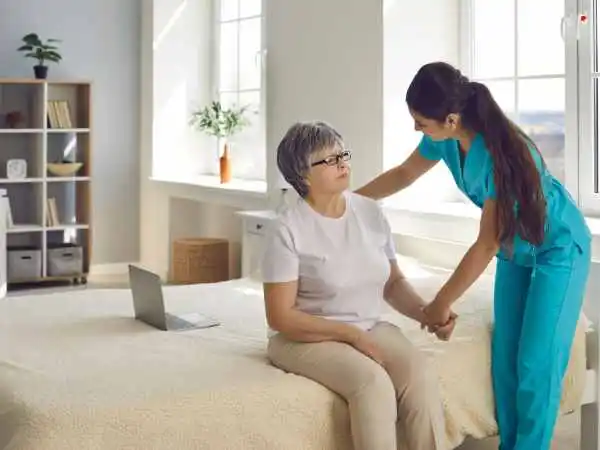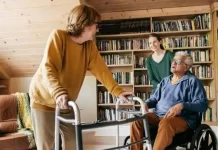The quality of life in a care home is significantly influenced by the relationships between residents and the staff members who care for them. Understanding the different staff roles and how these professionals interact with residents can help families and residents to appreciate the support system in place and enhance their experience in the care home environment.
1.Caregivers and Certified Nursing Assistants (CNAs)
Role: Caregivers and CNAs are often the primary point of contact for residents. They assist with a range of daily activities such as bathing, dressing, eating, and mobility. They also provide companionship and emotional support, ensuring that residents’ needs are met promptly and respectfully.
Resident Relationship: Caregivers and CNAs develop close, personal relationships with residents due to their frequent and direct interactions. Trust and familiarity are key components of this relationship, creating a sense of security and comfort for the residents.
2.Registered Nurses and Licensed Practical Nurses
Role: RNs and LPNs oversee the medical and health-related needs of residents. They administer medications, monitor vital signs, manage chronic conditions, and coordinate with doctors and other healthcare professionals. They’re also responsible for creating and updating care plans tailored to each resident’s health requirements.
Resident Relationship: Nurses maintain professional yet compassionate relationships with residents. They provide critical health care and support, often becoming trusted advisors for residents regarding their health concerns. Their role is essential for the ongoing well-being of the residents.
3.Medical Directors and Physicians
Role: Medical directors and physicians are responsible for the overall medical care and health policies within the care home. They conduct regular health assessments, diagnose medical conditions, prescribe treatments, and oversee the implementation of healthcare services.
Resident Relationship: While their interactions may be less frequent compared to other staff, the quality of their relationship with residents is crucial. They provide specialized medical care and build trust through their expertise and understanding of each resident’s health history.
4.Activities Coordinators
Role: Activities coordinators plan and facilitate recreational and social activities designed to engage residents physically, mentally, and socially. These activities include arts and crafts, exercise classes, games, cultural events, and outings.
Resident Relationship: Activities coordinators at dedicated care homes like stpetersbury.com play a vital role in enhancing the quality of life for residents by keeping them active and engaged. They develop friendly and motivating relationships with residents, encouraging participation and fostering a sense of community.
5.Dietitians and Nutritionists
Role: Dietitians and nutritionists plan and oversee meal programs that meet the dietary needs of residents. They ensure that meals are nutritious, balanced, and tailored to individual health requirements, including special diets for conditions like diabetes or heart disease.
Resident Relationship: They interact with residents to understand their dietary preferences and health needs, building relationships based on trust and care. Their role ensures that residents enjoy their meals while maintaining proper nutrition.
6.Housekeeping and Maintenance Staff
Role: Housekeeping and maintenance staff are responsible for maintaining a clean, safe, and comfortable living environment. They handle cleaning, laundry, repairs, and general upkeep of the facility.
Resident Relationship: Although their interactions may be brief, housekeeping and maintenance staff contribute significantly to the residents’ comfort and well-being. Friendly and respectful interactions help to build a positive atmosphere in the care home.
Conclusion
Understanding the various roles within a care home and the relationships between staff and residents is crucial for ensuring a high-quality care experience. By fostering open communication, providing personalized care, and maintaining respect and dignity, care homes can create a nurturing environment where residents feel valued and supported. This holistic approach to care ensures that residents not only receive the necessary medical attention but also thrive emotionally and socially in their new home.























